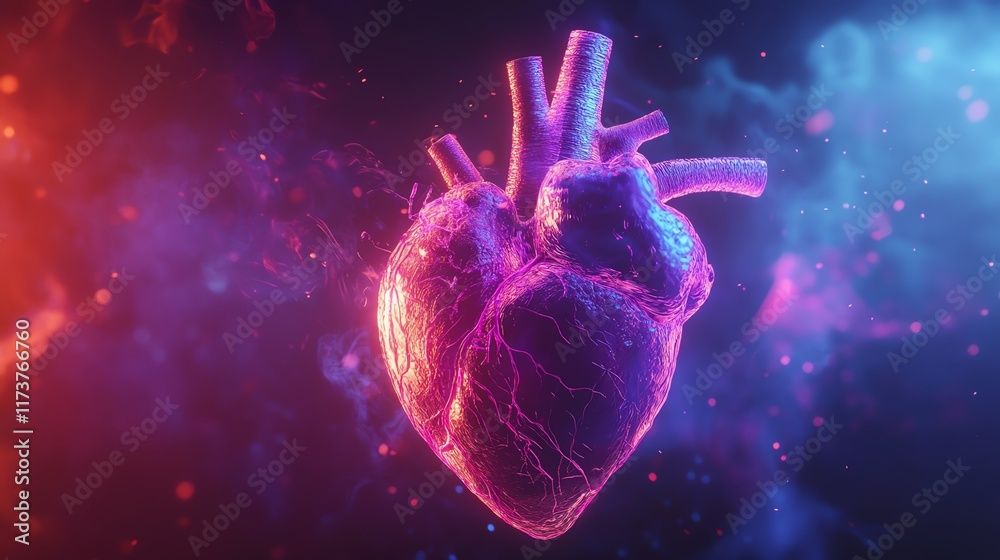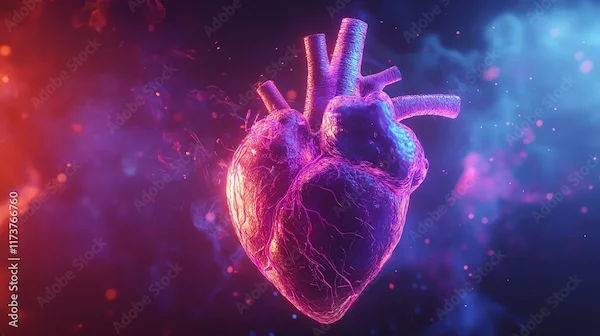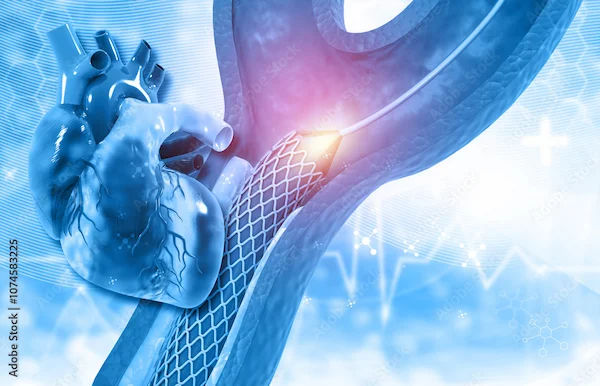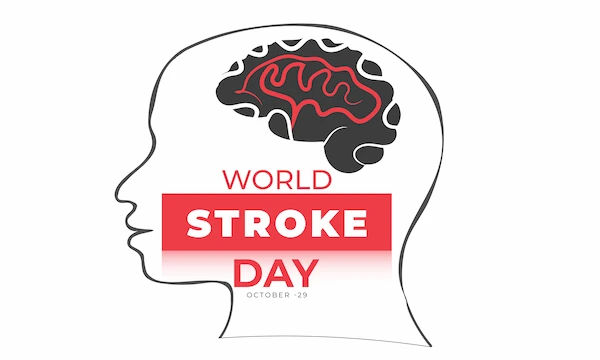Life After Angioplasty: What to Expect
Explore what to expect after angioplasty, including recovery tips, lifestyle changes, and how to maintain heart health for a better quality of life post-procedure.

Written by Dr. Vasanthasree Nair
Reviewed by Dr. Dhankecha Mayank Dineshbhai MBBS
Last updated on 7th Aug, 2025

Undergoing angioplasty can be a life-changing experience, especially if you’ve had a heart attack or severe chest pain (angina). While the procedure helps restore blood flow to your heart, recovery and long-term care are equally important. If you or a loved one has recently had angioplasty, you may wonder what comes next.
This guide will help you understand what to expect after angioplasty, how to take care of your heart, and steps to lead a healthy life moving forward.
Understanding Angioplasty
Angioplasty is a minimally invasive procedure used to open blocked or narrowed coronary arteries (blood vessels supplying the heart). A small balloon is inflated inside the artery to widen it, and often a stent (a tiny mesh tube) is placed to keep the artery open.
While angioplasty provides immediate relief from symptoms like chest pain, it is not a cure for heart disease. You’ll need to make lifestyle changes and follow medical advice to keep your heart healthy.
What to Expect Immediately After Angioplasty?
Here’s what to expect after an angioplasty:
1. Recovery in the Hospital
- You’ll be monitored for a few hours or overnight.
- The insertion site (usually the wrist or groin) may feel sore or bruised.
- You may be given blood-thinning medications to prevent clots.
2. Going Home
- Most patients can return home within 24-48 hours.
- Avoid heavy lifting or strenuous activity for a few days.
- Follow your doctor’s instructions about wound care and medications.
3. Possible Side Effects
- Mild discomfort at the stent site.
- Fatigue for a few days.
- Rarely, minor bleeding or bruising where the catheter was inserted.
When to Seek Immediate Help:
- Severe chest pain.
- Excessive bleeding or swelling at the insertion site.
- Shortness of breath or fainting.
Consult Top Heart Specialists
Long-Term Recovery & Lifestyle Changes
Recovery doesn’t end after leaving the hospital. To prevent future heart problems, you’ll need to adopt a heart-healthy lifestyle.
1. Medications Are Crucial
Your doctor will prescribe medications to:
- Prevent blood clots (e.g., aspirin, clopidogrel).
- Control cholesterol (statins).
- Manage blood pressure and heart function (beta-blockers, ACE inhibitors).
Never stop medications without consulting your doctor.
2. Cardiac Rehabilitation (Cardiac Rehab)
A structured program that includes:
- Supervised exercise.
- Nutrition counselling.
- Stress management.
- Education on heart-healthy living.
Cardiac rehab has been shown to reduce future heart risks and improve recovery.
3. Diet & Nutrition
A heart-friendly diet can help prevent further blockages. Focus on:
- Fruits, vegetables, whole grains, nuts, and legumes.
- Lean proteins (fish, chicken, beans).
- Healthy fats (olive oil, avocados, nuts).
- Limit salt, sugar, fried foods, and processed meats.
4. Exercise Regularly
- Start with light walking and gradually increase activity.
- Aim for 30 minutes of moderate exercise (walking, swimming, cycling) most days.
- Avoid heavy lifting or intense workouts without medical clearance.
5. Quit Smoking & Limit Alcohol
- Smoking dramatically increases the risk of another heart attack.
- If you drink, limit alcohol to 1 drink per day for women, 2 for men.
6. Manage Stress & Mental Health
- Heart disease recovery can be emotionally challenging.
- Practice relaxation techniques (deep breathing, meditation, yoga).
- Seek support from family, friends, or a counsellor if needed.
Monitoring Your Health
1. Regular Follow-ups
- Visit your cardiologist as scheduled.
- Blood tests, ECGs, or stress tests may be needed to monitor heart function.
2. Watch for Warning Signs
Contact your doctor if you experience:
- Recurring chest pain.
- Shortness of breath.
- Swelling in legs.
- Unusual fatigue.
3. Managing Other Health Conditions
- Keep diabetes, high blood pressure, and cholesterol under control.
- Lose weight if needed (even a small weight loss helps).
Myths vs. Facts About Life After Angioplasty
Myth: "I can stop medicines once I feel better."
Fact: Medications prevent future blockages—stopping them increases risk.
Myth: "I should avoid all physical activity."
Fact: Moderate exercise strengthens the heart—just follow your doctor’s advice.
Myth: "Angioplasty cures heart disease."
Fact: It treats blockages but doesn’t eliminate the need for a healthy lifestyle.
When to Consult a Doctor?
If you experience:
- New or worsening chest pain.
- Unexplained dizziness or fatigue.
- Signs of infection at the stent site.
Don’t ignore symptoms—early intervention can prevent complications.
Conclusion
Angioplasty is a new beginning, not an end. With the right care, medications, and lifestyle changes, you can lead a long, active, and fulfilling life.
Book a cardiology consultation or follow-up test on Apollo 24|7 for personalised care.
Consult Top Heart Specialists
Consult Top Heart Specialists

Dr. Tripti Deb
Cardiologist
40 Years • MBBS, MD, DM, FACC, FESC
Hyderabad
Apollo Hospitals Jubilee Hills, Hyderabad

Dr. Abhishek Rathore
Cardiologist and Electrophysiologist
7 Years • MBBS, MD (Gen. Medicine), DM ( Cardiology ), Post-Doctoral Fellowship in Cardiac Electrophysiology.
Indore
Apollo Hospitals Vijay Nagar, Indore

Dr. Bhethala Sharan Prakash
General Physician/ Internal Medicine Specialist
5 Years • MBBS MD
Bengaluru
PRESTIGE SHANTHINIKETAN - SOCIETY CLINIC, Bengaluru

Dr. Anand Ravi
General Physician
2 Years • MBBS
Bengaluru
PRESTIGE SHANTHINIKETAN - SOCIETY CLINIC, Bengaluru
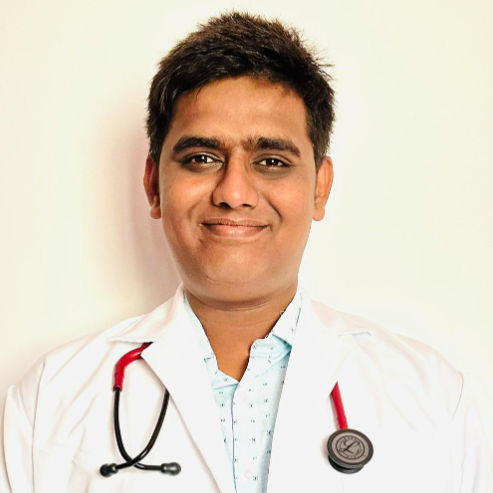
Dr. Sushith C
General Physician
2 Years • MBBS
Bengaluru
PRESTIGE SHANTHINIKETAN - SOCIETY CLINIC, Bengaluru
Consult Top Heart Specialists

Dr. Tripti Deb
Cardiologist
40 Years • MBBS, MD, DM, FACC, FESC
Hyderabad
Apollo Hospitals Jubilee Hills, Hyderabad

Dr. Abhishek Rathore
Cardiologist and Electrophysiologist
7 Years • MBBS, MD (Gen. Medicine), DM ( Cardiology ), Post-Doctoral Fellowship in Cardiac Electrophysiology.
Indore
Apollo Hospitals Vijay Nagar, Indore

Dr. Bhethala Sharan Prakash
General Physician/ Internal Medicine Specialist
5 Years • MBBS MD
Bengaluru
PRESTIGE SHANTHINIKETAN - SOCIETY CLINIC, Bengaluru

Dr. Anand Ravi
General Physician
2 Years • MBBS
Bengaluru
PRESTIGE SHANTHINIKETAN - SOCIETY CLINIC, Bengaluru

Dr. Sushith C
General Physician
2 Years • MBBS
Bengaluru
PRESTIGE SHANTHINIKETAN - SOCIETY CLINIC, Bengaluru
